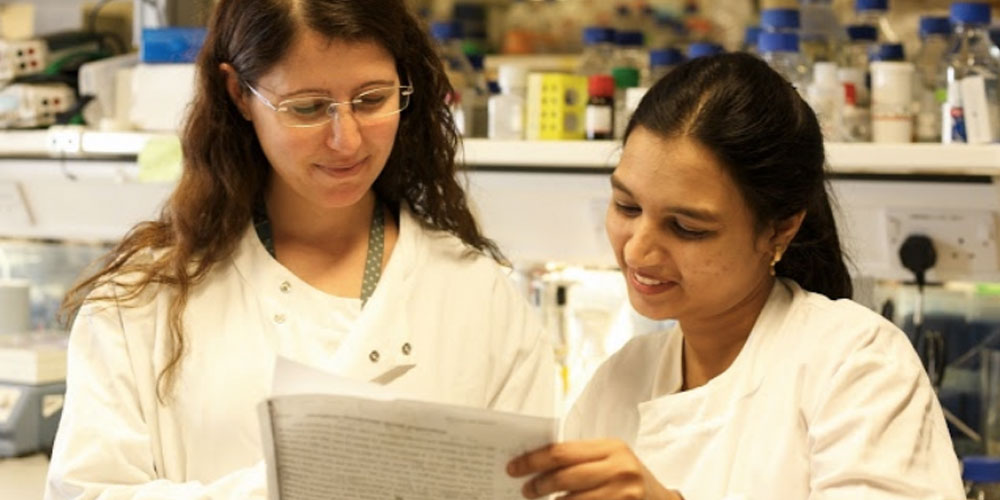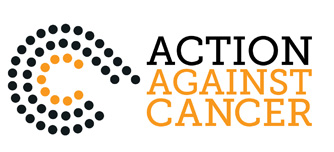Our work
Pregnancy and Breast Cancer
Breast cancer is the most common cancer in women in the UK, with more than 50,000 cases diagnosed each year. This project aims to improve survival rates of breast cancer patients by examining two known risk factors:
- Early full-term pregnancy decreases long-term breast cancer risk, although there is a transient increased risk of having cancer diagnosed soon after pregnancy.
- On the contrary, women bearing their first child at a later age are more at risk of developing cancer compared to women who have not had children.
The molecular dynamics underlying the correlation between the age of a woman at her first pregnancy and the risk of developing breast cancer are not fully understood. The research will analyse DNA mutations in normal and malignant mammary tissue.
The core members of the team are Research Associate Dr Biancastella Cereser and PhD student Neha Tabassum, both shown right. They are examining how both normal and cancer mutations expand or disappear, at different time points during the reproductive years of women who have had children, in comparison with women of the same age who have never had children. In this way, they believe that they will be able to calculate the probability of developing cancer, enabling earlier diagnosis and more effective treatment.
Project objectives
1) Understand how cancer-promoting mutations, if present in the DNA of normal breast tissue, can be affected by pregnancy.
2) Create for the first time a model of growth and expansion of the normal breast, and calculate the probability of a mutated clone developing into cancer.
This will provide future patients, in particular from at risk categories, with an informed choice when deciding to plan a pregnancy. If the age of the patient is deemed at higher risk for developing breast cancer, a surveillance programme could be implemented to closely monitor any changes in the breast after a late pregnancy and improve early cancer detection. Early diagnosis is very often key to successful cancer treatment.
Project activities
- Collection of a large number of normal breast and breast cancer samples, derived from patients at different stages of their life (i.e. before any pregnancy, after pregnancy, and at different ages) who undergo routine clinical care or donate their tissue to research.
- Analysis using staining and imaging of breast cells to determine protein changes.
- Perform whole genome sequence analysis of samples to determine low frequency mutations.
- Validation of results with laboratory experiments.
- Analysis of huge amounts of data resulting from next generation sequencing, whereby many tests are run simultaneously using the latest computer technology.
- Creation of a mathematical model comparing normal breast growth in women who have had children, and women who have not.
Progress to date
Working in collaboration with the Imperial College Tissue Bank and the Graz Biobank in Austria, the team has collected and stained the first 15 samples for the project.
Staining enables easy identification of the breast tissue on a specialised laser-capture microdissection microscope, which allows the isolation of single cells and consequent DNA extraction. Laser-capture microdissection and DNA extraction are currently in progress, and once the team has extracted and quantified DNA from approximately 25 samples, the next step of the work can proceed with the preparation of the first batch of samples for next-generation sequencing.
To read more about PhD Student Neha Tabassum’s work on this project, click here.

